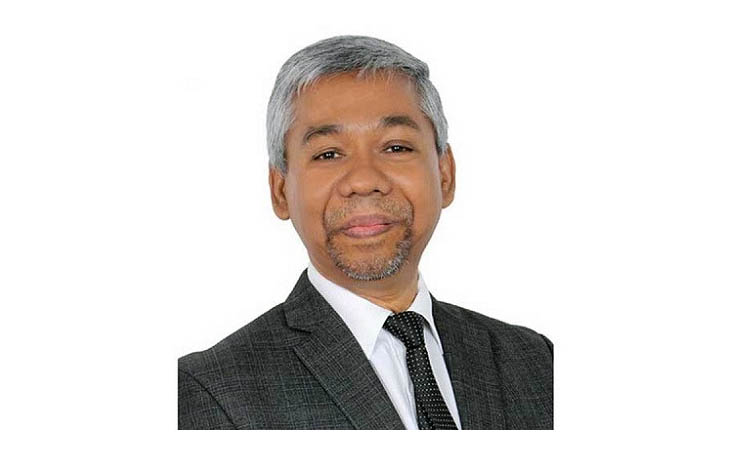News Flash
News Flash

DHAKA, April 13, 2025 (BSS) - Chairman of National Board of Revenue (NBR) Md.
Abdur Rahman Khan today said there is less possibility of reducing individual
and corporate tax rates in the upcoming budget for the fiscal 2025-26.
"Our individual and corporate tax rates are quite low in the region
comparatively, so there is less possibility of reducing these rates further
in the upcoming budget," he said.
The NBR chief said this while speaking at a live discussion session titled
"Pre-Budget Discussion 2025-26: Private Sector Perspective" at a hotel in the
city.
Dhaka Chamber of Commerce and Industry (DCCI), Samakal and Channel 24 jointly
organised the discussion.
Abdur Rahman Khan said the existing tax, VAT and customs rates will be
rationalized along with the automation of the entire revenue management
system.
The 'National Single Window' has been started recently after a long closure
and the businessmen are getting its facilities already, he said.
He also said automation will be implemented at every level of the tax
management in the coming days and the bond automation project will be
launched soon.
The NBR chief hoped that the existing disparity in the tax rates at different
levels would be resolved in the next budget.
In order to continue the economic growth momentum, DCCI President Taskeen
Ahmed said it is necessary to keep increasing the revenue collection and for
this, enhancing tax net as well as easing the overall tax management system
across the board is a must.
For the upcoming national budget, he recommended introduction of fully
automated corporate tax return system, abolition of advance tax for the
manufacturers at the import stage and reduction of the same for the
commercial importers.
He also proposed to impose at least one percent VAT for the entrepreneurs of
informal sector and single digit VAT for the other traders.
He also said considering the prevailing local and geo-political situation, it
is necessary to reduce the interest rate on loans, extend the loan
classification period by another six months and provide moratorium facility
for at least six months for all industries, establish good governance in the
financial sector to reduce non-performing loans, simplifying procedures of
CMSME loans and formulating equity-based share policy in the capital market
for long-term financing.
Taskeen Ahmed also demanded competitive fuel pricing in the industrial
sector, as well as ensuring uninterrupted gas and power supply for the
development of infrastructure and logistics management for strengthening
industrialization in Bangladesh.
Besides, he opined that special facilities should be provided in the upcoming
budget in potential sectors like agriculture, leather, pharmaceuticals,
automobile, light engineering and information technology to increase export
earnings.
Regarding recent imposition of tariff on Bangladesh's export to the United
States of America (USA) by its government, President of International Chamber
of Commerce, Bangladesh and former President of DCCI Mahbubur Rahman said the
government should take initiative to negotiate with the US government in this
regard and he also suggested to form a Task Force with representatives of the
private sector, including the DCCI.
He further stressed on full automation of customs and revenue structure to
bring transparency in the revenue management sector.
Later, he added that the budget is formulated not only for a year, rather it
has long term guidance for the business and economy as well.
He further urged to facilitate the local investors in the next budget, so
that they can contribute more to our economy.
Former Commerce Minister Amir Khasru Mahmud Chowdhury said the economy will
not expand without increasing investment and business growth, but necessary
reforms are needed to ensure supportive policies.
"We have a mismatch in our long-term financing method, due to which the
desired level of business progress is not being seen, because it is not
sustainable to collect deposits in a short-term basis and give loans in the
long term," he added.
Effective and supportive tax policies have to be formulated to ensure
investment expansion, where we are lagging far behind, he opined.
Former FBCCI President Abdul Awal Mintoo urged for a business-friendly budget
in the context of current geo-political situation.
He also said that contractionary monetary policy for longer time is not ideal
for the overall development of the private sector.
He underscored the importance of coordination among the revenue and related
policies for improvement of the business climate.
In order to increase the tax-GDP ratio, he stressed on bringing the non-tax
payers on board especially those who have TIN but not paying any taxes.
Former FBCCI President Mir Nasir Hossain said due to budget deficit and
contractionary monetary policy, credit flow to the private sector has not
reached to the desired level.
He demanded for an inclusive, business friendly, investment friendly, timely
and a pragmatic budget for the next fiscal.
He also called for more focus on reducing government expenditure in the form
of austerity to meet the revenue deficit.
The former FBCCI president said if harassment is stopped, more people will be
encouraged to pay taxes.